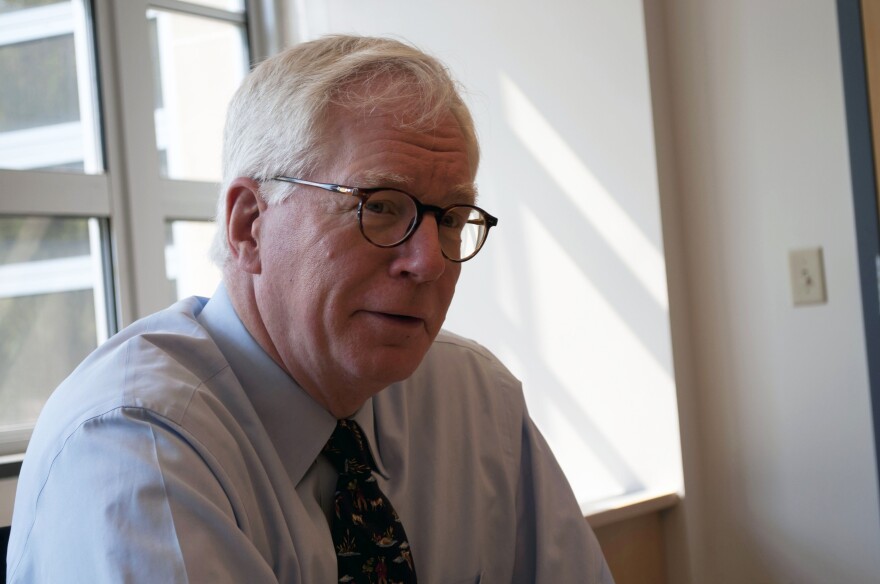In an essay in Forbes Magazine, entrepreneurship expert and Syracuse native Carl Schramm knocks his hometown for forgetting its innovative roots and potentially dooming its future.
Schramm is the former president of the Kauffman Foundation, an organization that supports entrepreneurship. He returned to Syracuse in the fall to become a University Professor at Syracuse University. The Innovation Trail spoke with him in September.
Schramm writes in the article that up until the Great Depression, Syracuse could lay claim to being one of the most highly educated, healthiest, wealthiest and most innovative cities in the country. Its "civic distinctions" today - like its high poverty rate, low tax base and poor high school graduation rate - are "embarrassing," Schramm says.
He writes:
It appears that its future is no longer dependent on the genius of its people but the largesse of higher order governments both state and federal. It has lost its ability to determine its own fate. Poverty is the city’s overwhelming social characteristic – over 50 percent of school students come from families that are officially “poor.” When a metropolis no longer generates the wealth to sustain itself it has no choice but to become a supplicant city whose future is guided by federal and state politicians and bureaucrats whose visions of what to do with places like Syracuse are likely not sensitive to its history or what its destiny might be.
Syracuse has "economic amnesia," Schramm writes, saying many in the city have forgotten about the greats that built it - like Lyman C. Smith (a typewriter magnate) and Willis Carrier (inventor of air conditioning).

"A careful study of urban economics suggests that a city that forgets its innovative history risks providing no role models for subsequent generations," he writes.
Schramm concludes the piece by saying there will be no silver bullet to turn Syracuse's economy around. He cites a need for fewer government regulations to help boost small business and invention.
He ends with a call for the economic turnaround of Syracuse to be done locally:
If Syracuse ever gets growth going again maybe the next generation will be introduced as being from the city that was the beta site for homegrown urban economic renewal that was in keeping with its historic entrepreneurial legacy.




